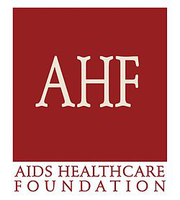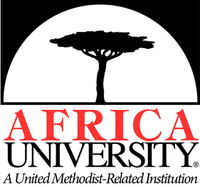Monitoring, Evaluation and Learning Officer
Job Description
Position Title: Monitoring, Evaluation, and Learning Officer
Location: Harare
Supervisor: Monitoring, Evaluation, and Learning Advisor
Program Summary:
The 5-year USAID-funded Improving MNCH services project’s goal is to Improve maternal, neonatal, and child health (MNCH) outcomes through increasing access to quality MNCH services and strengthening health services in five targeted provinces in Zimbabwe (Manicaland, Masvingo, Matabeleland South, Midlands, and Mashonaland West). This project will provide Technical Assistance (TA) to strengthen technical capacity of MOHCC at national, provincial, and district level to scale up high-impact MNCH Interventions; enhance planning, distribution, and retention of MNCH health workforce in implementation areas; reinforce planning, management, and coordination of essential commodities and equipment procurement.
Position Summary:
The Monitoring, Evaluation, and Learning Officer, under the supervision and technical oversight of the MEL Advisor, is responsible for the implementation of monitoring, evaluation, and learning activities, managing FHI 360’s collaborative learning and adaptation (CLA) agenda with an emphasis on generating new knowledge based on existing activities under the MNCH project and any new research projects that advance FHI 360’s mission. The MEL Officer will work with the Ministry of Health and Child Care and local implementing partners to ensure that monitoring, evaluation, and learning activities are appropriate and meet the donor and project’s MEL needs.
Duties and Responsibilities
Duties and Responsibilities:
Monitoring and Evaluation
Assist MEL Advisor in the design and implementation of a high-quality MEL system for the activity that conforms to FHI 360, donor, and MoHCC requirements.
S/he will support the program team to collate, analyze, visualize, present, report on, and generate knowledge from the programmatic data arising from the districts and provinces.
Work with program staff, and local partners to support the correct implementation and use of monitoring and evaluation tools, and adherence to manuals, guidelines, and complete, correct, and timely reporting.
Conduct routine monitoring visits to project sites, conduct data quality assessments (DQAs) using standard tools, and maintain a database of DQA results.
Assist with setting up systems for reliable and comprehensive analysis, visualization, and dissemination of the results and impact of the project.
Ensure that the quality of program/project activities adheres to standard operating procedures (SOPs) by supporting the development and implementation of appropriate mechanisms to ensure quality.
Assists in the development and maintenance of the electronic data management system of the project and provides technical assistance and training to the staff at the sites responsible for data entry.
On a weekly or monthly basis as appropriate, analyze program data and provide reports to MEL Advisor and Technical Director, MOHCC, and local partners.
Assist MEL Advisor in the consolidation of quarterly, annual, end-of-project, and other ad hoc reports as needed.
Support project data/performance review meetings and use program/project monitoring data to modify existing programs and design new programs.
Capacity building of MEL, program staff, MoHCC, and other partners in M&E, data analysis, and data visualization, dissemination, and use
Represent project MEL at National forums, meetings, or TWGs as needed.
Document lessons learned best practices, and success stories in monitoring, evaluation, and learning according to USAID guidelines.
Assist in the development of presentations for meetings and or conferences.
Perform other related duties as assigned.
Research and Learning
Actively involved in the development and implementation of the project CLA and knowledge management agenda.
Overall project management and quality assurance of research projects with a greater emphasis on MNCH, logistics and supply chain, and human resources for health.
Lead in the design and development of protocols, manuals, data collection forms, and SOPs for new initiatives as appropriate.
Contribute to increasing the scientific output of staff working in the FHI 360 Zimbabwe office, tapping into resources in FHI 360 HQ as appropriate.
Keep abreast of scientific literature in the fields of MNCH, FP, logistics, and HRH.
Promote and utilize USAID best practices, lessons learnt, and other standards developed by international normative bodies.
Liaise with FHI 360 HQ for relevant research capacity building, implementation, and collaboration opportunities.
Actively seek collaboration opportunities by communicating regularly with in-country partners to develop new project ideas, utilize research results, and scale up promising programs.
Develop abstracts, briefs, manuscripts, and other related knowledge related products and implement systems to disseminate these.
Actively involved in the publication of lessons learnt, best practices, and other knowledge generated from project implementation.
Qualifications and Experience
Knowledge, skills, and abilities:
Considerable knowledge and expertise in public health, MNCH, family planning, logistics, supply chain, HRH, and other reproductive health (RH) related issues.
Sound knowledge and experience regarding M&E, statistics, and quality assurance/quality improvement, and their specificities for Zimbabwe.
Solid background in research methodology, fieldwork, and data analysis techniques.
Sensitivity to cultural differences and understanding of the political and ethical issues in Zimbabwe.
Capacity to manage and build the capacity of provincial/district teams.
Capacity to consistently provide technical inputs on Sexual and Reproductive Health and in the FHI 360 network to improve the quality-of-service delivery.
Ability to work well with others and to develop and maintain compatibility among project staff, subcontractors, consultants, and recipients of assistance.
Ability to represent FHI 360 Zimbabwe to stakeholders and the NGO community.
Ability to manage tight deadlines and deliver high volumes of work with minimal supervision.
High degree of proficiency in written and spoken English communication, including presentation and training skills.
Well-developed computer skills and knowledge of data analysis, dashboards development, and visualization software such as GIS, PowerBI, STATA, SPSS, R, Python, Microsoft Excel, Microsoft Access, etc.
Qualifications and requirements:
Minimum of bachelor’s degree in public health, statistics, or demography +/-background in a health-related field with at least 5+ years of relevant experience in project-level or state/national-level Monitoring, Evaluation, and Research in Maternal and Child Health programs at national or provincial level.
Or, Master’s in public health, clinical epidemiology or biostatistics, MS/MA in demography, economics, population studies with a minimum of 3 years of relevant experience
Sound practical knowledge of statistics and the use of statistical software.
Proven experience in project development, planning, and facilitating technical training.
Familiarity with Zimbabwe's public sector health system and NGOs and CBOs is required.
Familiarity with USAID programs is required.
How to Apply
Similar Listings

Socio-Economic Strengthening Officer
Family AIDS Caring Trust - FACT — Makoni

RESILIENCE KNOWLEDGE HUB TEAM LEADER
Mercy Corps — Harare

PROJECT FINANCE AND ADMINISTRATION MANAGER
Mercy Corps — Harare

REGISTERED GENERAL NURSE: AIDS HEALTHCARE FOUNDATION (BEITBRIDGE)
AIDS HEALTHCARE FOUNDATION — Beitbridge

Advancement Officer
Africa University - AU — Mutare

Location: Harare
Company: FHI 360
Expiry Date: 2024-04-12 00:00:00
